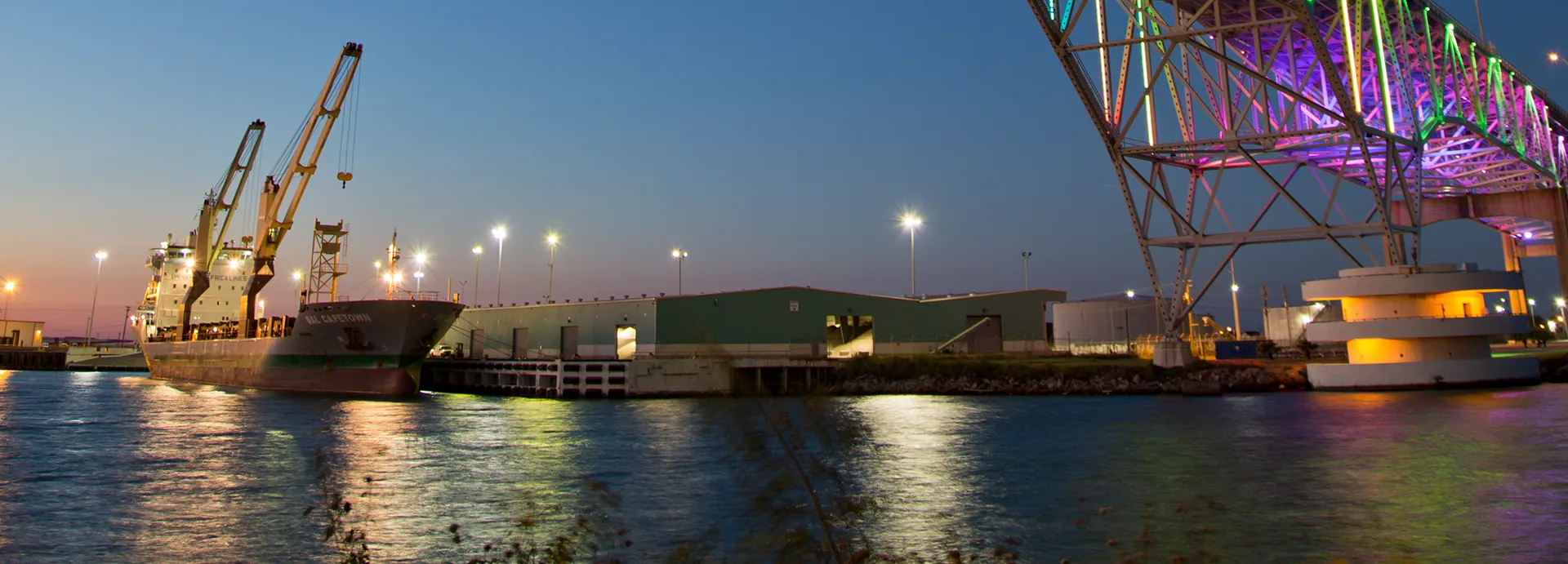Texas ports are critical to the economic growth of the state and are key components of Texas' transportation system. As hubs of international trade, Texas ports support nearly $713.9 billion in economic activity in the state and account for 28% of Texas GDP.
According to a 2024 report by the Texas Ports Association, the port industry supports more than 153,000 direct jobs in Texas, generating $12.6 billion in personal income. In total, 2.5 million jobs and $196.7 billion in personal income is generated from economic activity dependent on the state's ports, and the industry contributes $17.1 billion annually in state and local tax revenues.
The Maritime Division promotes the maritime industry in Texas and helps to develop the state's maritime transportation system, including intermodal connectivity of each port to the interstate highway system and freight network.
Together, Texas ports move more cargo than any other state, more than 746.4 million tons. Texas ports also served nearly 1.5 million cruise passengers in 2023. Six of the state's ports are ranked in the top 20 U.S. ports by total tonnage: Houston, Corpus Christi, Beaumont, Port Arthur, Texas City and Port Freeport.
Despite the strong position of the maritime industry in Texas, there is a significant need for additional funding for maritime infrastructure, seaport connectivity, and ship channel improvement projects. The biennial Texas Port Mission Plan, developed in collaboration with the Port Authority Advisory Committee, highlights these needs.
TxDOT's port profiles highlight more statistics related to each port's primary commodities, vessel and truck traffic, and port facilities. You can find out more information about each port by visiting their websites below:
